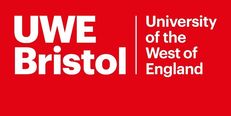Connecting theory with practice on campus and beyond to increase sustainability team engagement with Education for Sustainable Development as a means of tackling key sustainability challenges and enhancing student learning
What advice would you give an institution staff member keen to get this started?
“The model can work where you have a person who is comfortable working at different levels, able to work with academics and familiar with academia, able to switch between subjects - multidisciplinary background, you need public speaking and teaching skills… I did a teaching course and it transformed my role… These three strands are key:
- Connecting people with the university
- Creating a strong push for civic engagement
- If possible self-selection - things you can do yourself”
– Vicki Harris, sustainability engagement co-ordinator
The UWE Bristol Sustainability Team (based in Estates and Facilities) made a strategic decision to significantly increase their input into Education for Sustainable Development (ESD) in 2017. In doing so they aimed to build on their strength in linking theory and practice on campus and beyond, providing a Living Lab style approach to teaching and learning, as well as creating strategic partnership working between operational and academic staff.
The University’s aspirations for ESD are explicitly included in their sustainability plan, namely that 100% of students be exposed to sustainability within the curriculum.
Additionally, UWE identified three connected key drivers for applied learning and research opportunities:
- A concern to maximise the range of subjects and numbers of students reached as quickly as possible by the Sustainability Team.
- A recognition that working through the curriculum is a more effective way of engaging students than through optional events and activities on campus.
- An understanding of the value of an eclectic and wide ranging approach which aimed to engage students at different stages of their student journey, from planting the seeds of future study and action at induction at Foundation level right through to in depth study at masters level.
Increased partnership working between students, academics, operational staff and the wider community is well supported by, and receives regular collaboration from, UWE’s Assistant Vice Chancellor for Environment and Sustainability Professor James Longhurst and Associate Professor in Education for Sustainable Development Georgina Gough, who coordinates the UWE Knowledge Exchange for Sustainable Education network (KESE).
Sustainability Team members make initial contact with academics for Living Lab style partnerships through various pathways: at the staff welcome fair, through KESE, through events such as the staff awards or the staff teacher training course, and finally through word of mouth and recommendation by colleagues.
Sustainability Team – Academic partnerships for curriculum input range from small interventions such as 10 minute inductions and campus tours to in depth lectures and seminars, practical projects and a growing number of work based learning opportunities for students. This type of engagement is taking place on courses ranging from Foundation level to PhD. As collaborative working grows and awareness of opportunities builds, the nature of the team’s input is developing: e.g. in Journalism, last year they did a lecture for 3rd year students and this year they are also setting sustainability themed briefs.
Last academic year (2017 – 18) the Sustainability Team engaged with 20 subject areas across the University, (reaching over 520 students), this year that number has increased to 26 in a diverse range of subject areas - from Animation, Creative Music Technology, Engineering in the Community, Business and Entrepreneurship to Mental Health Nursing. Developing partnership working across a large institution takes time, however the high-level support achieved at UWE is a real advantage for gaining momentum. A broad based and flexible approach has supported UWE to initiate conversations with a wide range of audiences to encourage students to see the world through the prism of sustainability.
The next challenge is to find ways to use our resources, which are limited, to greatest effect. An example of this could be providing staff with materials themselves to do inductions.






 Except where otherwise stated, content on this site is
licensed under a Creative Commons Attribution 3.0 License.
Except where otherwise stated, content on this site is
licensed under a Creative Commons Attribution 3.0 License.
